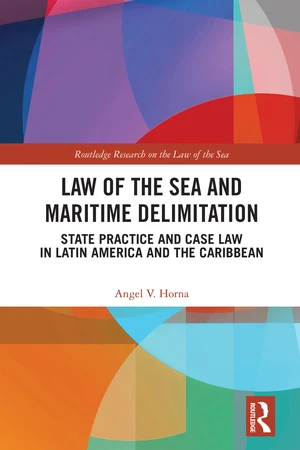The law of maritime delimitation has been shaped by the interpretation of certain provisions of the United Nations Convention on the Law of the Sea, which has led to State practice being neglected in current scholarship. This book presents an overview of the under-examined question of the impact of State practice in Latin America and the Caribbean on the development of the law of maritime delimitation. Examining the status of maritime boundaries in Latin America and the Caribbean, this book also ponders the impact of State practice and case law on the law of maritime delimitation. It outlines the historical framework of the establishment of maritime jurisdiction during colonial times and assesses the evolution of maritime delimitation and the contribution of Latin America and the Caribbean to the modern law of the sea. It discusses the law of maritime delimitation and, through jurisprudence, the development of the three-stage methodology to describe and explain maritime delimitation agreements in Latin America and the Caribbean according to the method or methods of delimitation employed. It reviews maritime boundaries in Latin America and the Caribbean that were submitted to third-party adjudication as well as provisional arrangements, considering the role of State practice in Latin America and the Caribbean on the development of the law of maritime delimitation. With a renewed focus on maritime delimitation, and increasing litigation focused on Latin America and the Caribbean, the book will be of interest to students, academics and practitioners in the fields of international law, law of the sea, and State practice.
Price history
Dec 17, 2022
€46.72

